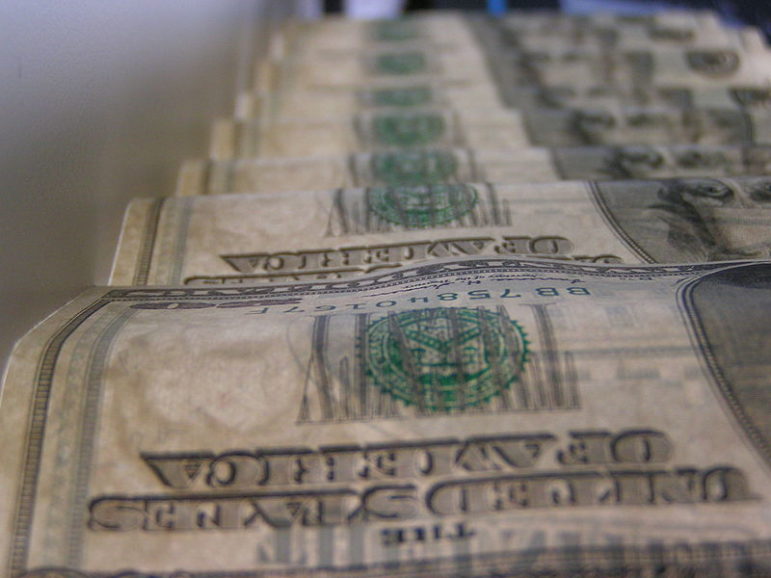
Man-ucommons
We are still just a few months into the new Albany and what a blessed change it’s been: Legislators are actually legislating. Bills are passing both houses and becoming law. If that weren’t enough, the laws being enacted are ones that will make deep and positive impact of the lives of New Yorkers in every corner of the state. But our elected officials still face the test of whether this truly is a new Albany or not: Will they finally pass the alternative to Albany’s big money dependence?
As powerful a change as it’s proven to be, we still haven’t gotten to the root cause of Albany’s long-standing problem. The facts are clear: Big donors dominate New York’s elections. A recent analysis by the Brennan Center shows that just 100 people donated more to candidates in 2018 than all 137,000 estimated small donors combined. These donors are more white and wealthy and scarcely represent the diverse people of New York State. Powerful spending by real-estate developers, hedge funders, big pharma, and fossil-fuel interests have plagued Albany for years, carrying undue influence in the legislative process, too often getting their way and spreading real harm to our communities.
This is the true horror of our democracy. The fundamental concept of a government of, by and for the people is turned on its head. Expanding and strengthening voting rights, as the new leadership in Albany has done already, is a critical component. But the ultimate way to unchain our money-laden democracy is to enact a small-donor matching funds system for campaigns, letting free people-powered politics.
A public campaign-financing option is nothing new. The first systems were implemented out of corruption scandals of Watergate and the like. Over the past three decades, cities and states have been moving to this alternative—in places like Connecticut, Maine, Arizona, the District of Columbia and Portland, Ore. New York City’s public-financing system has been heralded as a model for decades, and Suffolk County on Long Island enacted a matching program for their county races in 2017.
In New York State’s proposal, candidates who opt in must collect a certain amount of small donations, and then those small donations get matched six dollars for every one dollar donated. There are lower contribution limits all around and no corporate money. This alternative system allows candidates to focus on small donors from their community, not rely on $5,000-a-ticket lobbyist fundraisers to fill their campaign coffers.
It’s a game changer. For centuries so many have been under- or un-represented in the halls of power. Tenants’ rents are skyrocketing while big real-estate gets tax breaks for more luxury developments. Pipelines threaten our countryside and our water is poisoned. Our healthcare costs soar with no accountability demanded of Big Pharma and insurance. Our schools in the most vulnerable communities across the state don’t get the funding they need while school privitizers profit on our public dollars. This is not just a good government issue; it’s an issue of survival for the people in our communities. Big money in politics distorts and undermines the democratic process so the rich can get even richer. It must stop.
The new Democratic House under the leadership of Speaker Pelosi has made public financing a priority. HR1, the first order of business in the House of Representatives, passed the House last week. The bill would indeed enact a small-donor matching system for Congressional races. It unfortunately doesn’t have a prayer in the U.S. Senate. But in New York State, Governor Cuomo and the legislature have the power to get it done.
The new State Senate, the Assembly, and Cuomo have made early and important accomplishments worth being proud of. But unless they tackle the underlying culture in Albany, the money will find its way, and New Yorkers will suffer for it in the long run. Runaway inequality will go unchecked and the needs of every day New Yorkers never truly met. The governor put “fair elections” legislation in his Executive budget and the Senate and Assembly expressed support when they released their budget priorities.
Now all eyes are on whether our elected officials will actually get it done. Will they follow through on their commitments or will they disappoint all of New York hungry for a state government they can believe in? Our representatives must decide whether they will accept the status quo of high-dollar fundraisers or change for good with a small donor public financing system that puts the people at the center of our politics, of our government, and of our future.
Jess Wisneski is the co-director of Citizen Action.
Get the best of City Limits news in your inbox.
Select any of our free weekly newsletters and stay informed on the latest policy-focused, independent news.







